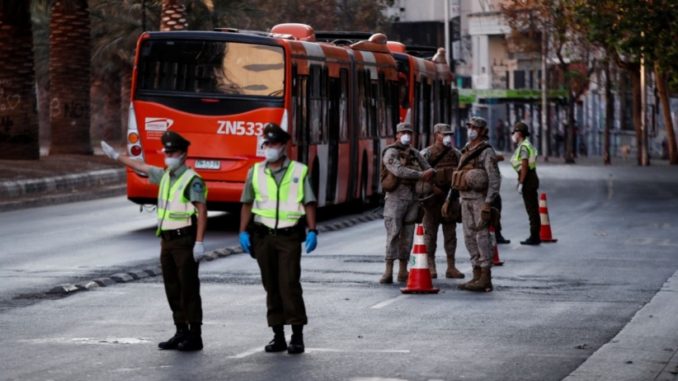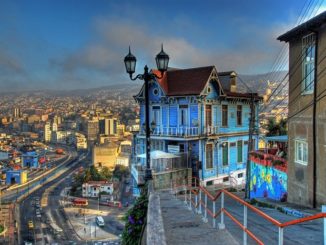
SANTIAGO – Chile’s Health Ministry on Sunday reported that the total number of confirmed cases in the country has risen to 43,781, with 450 deaths.
Health authorities reported that 29 people died in the last 24 hours affected by coronavirus, the highest daily number since the start of the pandemic, and some 2,353 new positive cases. Nearly 19,000 other patients have recovered from Covid-19, the disease causing the new coronavirus.
“Twenty-two of the deceased had chronic diseases, some with diabetes, hypertension and some in the final phase of their oncological treatments,” said the Undersecretary of Health, Paula Daza.
For his part, the undersecretary of healthcare networks, Arturo Zúñiga, reported that of the 1,493 mechanical ventilators available in the health system, there are 419 available.
“We have 711 patients in intensive care, 584 mechanical ventilators and 124 in critical condition,” he said. Likewise, the official explained that Chile has 80% of intensive care unit beds occupied with patients infected by coronavirus, with 90% in the Metropolitan Region.
Chile has predicted its outbreak would peak in the coming weeks, leading officials to announce lockdown measures for 38 districts, mainly in the capital Santiago and the metropolitan area, affecting over 7 million people.
As of Friday, 14,000 members of the Armed Forces, the paramilitary Carabineros, the PDI police, along with detachments of the Army’s elite Lautaro Special Operations Brigade, or black berets, Air Force special forces, the Marines, as well as the Carabineros special forces, riot police and tactical units have been patrolling the streets of metropolitan Santiago.
More than 74,450 military and police personnel have been dispatched across the country, and the military brass has been placed in charge of the 16 regional zones since President Sebastian Piñera declared a State of Catastrophe in March. To date, these patrols have detained 6,888 for violating curfew, 969 for committing crimes during the curfew and 1,255 for violating the total quarantine.
Supermarkets and small neighborhood grocery stores remain open, though the numbers of people entering was being strictly limited. Police and military also stepped up checks on drivers to examine travel permits.
The Chilean government responded quickly to the first cases on March 3, introducing a nationwide curfew and selective quarantines on areas with high incidences of the virus. Schools, universities and businesses were closed as part of social distancing measures and transport restricted.
Meanwhile, the number of coronavirus cases from across the world soared above 4.78 million on Sunday, with at least 315,000 fatalities and over 1.8 million recoveries.



